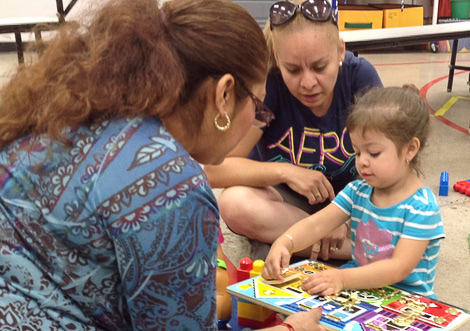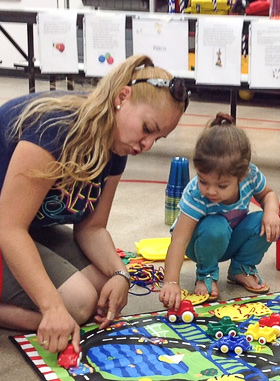 Maanasi was having a hard time playing sibling referee for her two children, ages 9 and 3. They would fight over toys, books and even where the other was supposed to sit when getting in the car. As their strife increased, so did Maanasi’s frustration.
Maanasi was having a hard time playing sibling referee for her two children, ages 9 and 3. They would fight over toys, books and even where the other was supposed to sit when getting in the car. As their strife increased, so did Maanasi’s frustration.
Then she attended the Nurturing Parenting classes at the Gilbert Public Library offered by New Directions Institute. There, Maanasi discovered a community of parents facing similar challenges and Parent Educators who facilitated child development education and parental troubleshooting on common difficulties.
New Directions is a non-profit organization designed to provide parents and caregivers with the training and tools to help babies, toddlers and preschoolers in Arizona develop a healthy brain and enter school ready to learn.
First Things First supports New Directions in offering these workshops free of charge.
At the workshop, which consisted of 10 interactive, 2-hour sessions, Maanasi learned to be conscious and mindful of her children’s desires. Not because she was necessarily going to allow whatever they wanted, but because understanding why her son or daughter wanted a particular thing would help her redirect them. She made a point of speaking to her children, especially her youngest, in a low and calm voice. One day, Maanasi’s daughter announced that she would try to speak to her little brother like her mother did.
 “A peaceful home creates a peaceful society,” Maanasi said. “It’s so simple.”
“A peaceful home creates a peaceful society,” Maanasi said. “It’s so simple.”
Maanasi noticed the difference in behaviors immediately. Before, when Maanasi tried to get her son into his car seat, he would often cry and refuse to sit in his seat. He insisted on sitting next to his older sister.
Maanasi implemented her Nurturing Parenting training and struck a deal with the little boy. He got to sit next to his sister when they first climbed into the car while Maanasi sung the alphabet song. When the song was finished, he had to move over into his car seat.
Now he willingly clamors into his spot. Maanasi was able to incorporate learning, while using a strategy, to show the children critical skills needed in school such as getting along with others.
“It takes a few moments longer, but we are all calmer when we leave,” Maanasi said.

